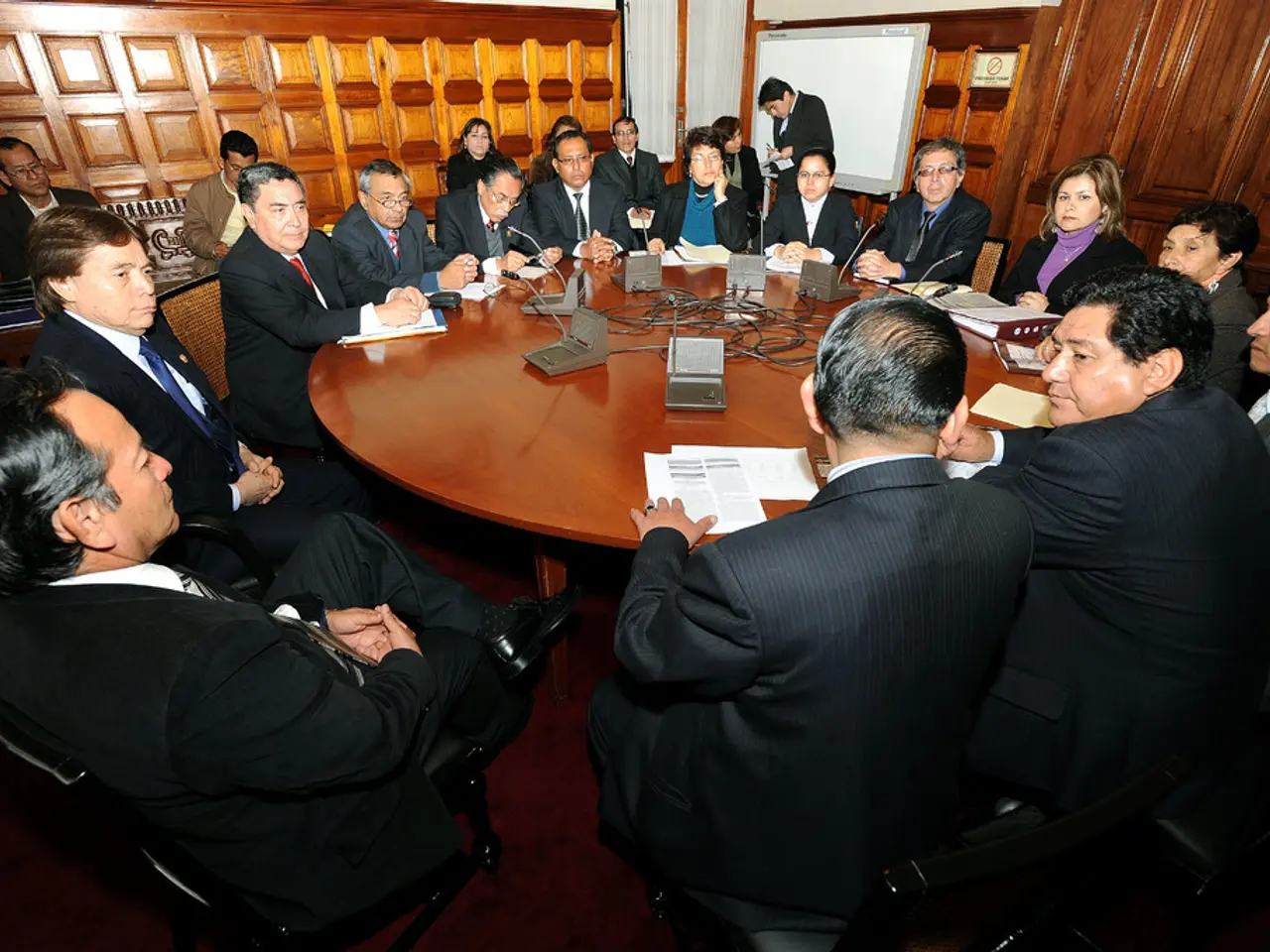U.S. Lobbying Against EU DSA Regulations Meet With Firm Resistance from European Commission: 'Our Standards Are Non-Negotiable'
The current dispute between the United States and the European Union (EU) over the EU's Digital Services Act (DSA) has escalated, with the US, particularly under the Trump Administration, fiercely opposing the DSA due to its potential impact on American tech companies.
The DSA, introduced by the EU in 2023, aims to govern how digital platforms handle disinformation and other online issues. However, the US government views the DSA as an overreaching regulatory framework that threatens free speech, imposes heavy financial burdens on US companies, and could censor American political discourse [1][4][5].
Secretary of State Marco Rubio has reportedly ordered US diplomats to oppose the EU's DSA, and the State Department has criticized it as "Orwellian" [6]. The US House Judiciary Committee has published reports framing the DSA as a tool of "foreign censorship," highlighting how its rules on content moderation extend extraterritorially, potentially forcing platforms to remove American political speech classified as illegal under EU standards, with severe fines for non-compliance [4][5].
Elon Musk's platform X (formerly Twitter) faces stringent compliance requirements under the DSA, including moderating disinformation, hate speech, and other content flagged by EU regulators. This adds operational and legal complexity, risks heavy fines (up to 6% of global revenue), and fuels accusations of censorship from US political actors [1][5].
Trade and regulatory tensions also play a role in this disagreement. The US has pushed for a role in EU digital regulatory processes during trade deal negotiations but has met firm EU resistance. The US has also threatened tariffs on the EU amidst these disputes, further straining transatlantic relations [2].
The disagreement is tied to deeper transatlantic tensions over digital sovereignty, data privacy, and governance, with the EU prioritizing citizen protections and the US emphasizing free market interests and free speech traditions [3].
The EU has been defiant in response to the State Department's criticism of the DSA [7]. The recent US-EU trade deal did not include the DSA, but it remains unclear if the Trump administration will continue its opposition [8]. As the dispute continues, American tech firms like Elon Musk's X are directly affected by stricter EU content rules and face significant operational challenges and risks under the DSA [1][4][5].
[1] https://www.reuters.com/technology/us-urges-eu-to-repeal-or-amend-digital-services-act-2021-12-20/ [2] https://www.reuters.com/business/eu-trade-chief-says-us-tariffs-threat-would-harm-both-sides-2021-12-02/ [3] https://www.cnet.com/news/us-eu-digital-services-act-dispute-explained/ [4] https://www.ft.com/content/53e66e3a-b1cb-478b-a72e-e620a2e9a671 [5] https://www.axios.com/policy/tech-companies-european-union-digital-services-act-censorship-698a2d76-b89f-478a-9788-16d75208307e.html [6] https://www.reuters.com/world/us/us-state-department-criticizes-eu-digital-services-act-2021-12-20/ [7] https://www.reuters.com/world/europe/eu-commission-defiant-amid-us-criticism-of-digital-services-act-2021-12-21/ [8] https://www.reuters.com/world/us/us-eu-trade-deal-excludes-digital-services-act-but-dispute-remains-unresolved-2021-12-10/
- The EU's Digital Services Act (DSA) has become a contentious issue in the realm of policy-and-legislation and politics, as the US, under the Trump Administration, has strongly opposed it due to concerns about its impact on American AI and tech companies.
- The DSA, a regulatory framework aimed at governance of digital platforms, has been criticized by the US government as an overreach that threatens free speech, imposes heavy financial burdens, and could lead to censorship of American political discourse.
- The disagreement over the DSA extends to crime-and-justice as well, with the US House Judiciary Committee labeling it a tool of "foreign censorship" and raising concerns about its extraterritorial content moderation rules that may force platforms to remove American political speech, subject to severe fines for non-compliance.







